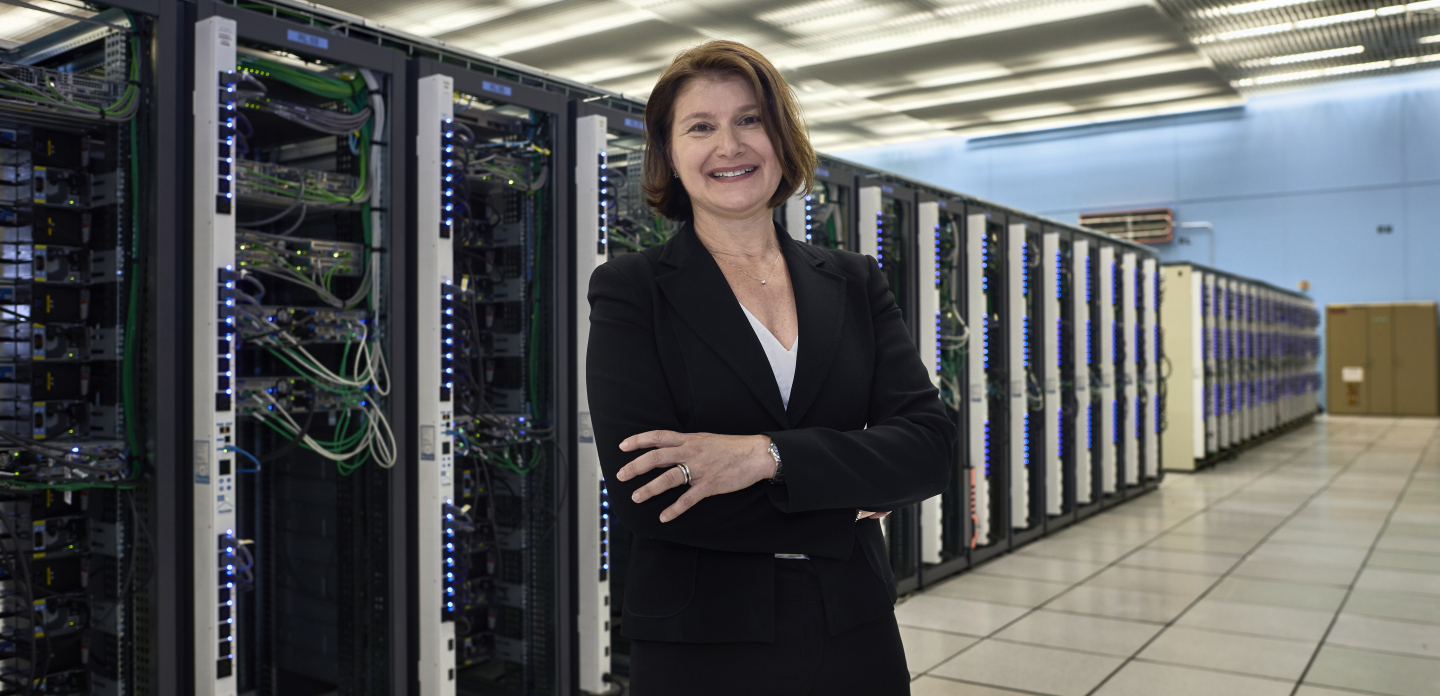
The EuroHPC Summit Week takes place online next week (22-26 March). The event brings together the main stakeholders in high-performance computing (HPC) in Europe, including technology suppliers, those running major infrastructures, and HPC users — from both science and industry. Maria Girone, CERN openlab CTO, will give a keynote talk on Thursday 25 March about the computing challenges faced by the high-energy physics community (10:00-10:45 CET). The presentation is available to all who have signed up for the EuroHPC Summit Week, which is free of charge.
Girone’s presentation will summarise the unprecedented computing and data challenges posed by the ambitious upgrade programme for the Large Hadron Collider (LHC). The anticipated increase in the complexity of particle-collision events, as well the higher rate of data collection rate, will substantially outstrip the gains expected from technology evolution. Further increasing the efficiency of how we use the HPC facilities at our disposal could potentially address the resulting resource gap. Girone will discuss the identified common challenges for integrating HPC centres into the HEP computing ecosystem.
“We are engaging at the community level to solve the technical challenges related to the integration of HPC, thus helping to pave the way to the exascale era,” says Girone. “HPC is a driver of innovation, both for heterogenous hardware and AI.”
The EuroHPC Summit Week closes on Friday 26 March with the PRACEdays21 panel discussion. CERN recently announced a new collaboration with PRACE, the Partnership for Advanced Computing in Europe; GÉANT, the pan-European network and services provider for research and education; and SKAO, the organisation leading the development of the Square Kilometre Array radio-telescope. In her talk, Girone will discuss how the four leading research organisations are working together to overcome challenges related to the use of HPC to support large, data-intensive science projects.
This collaboration is just one of several important initiatives that will be showcased by Girone. The EU-funded DEEP-EST project, to which CERN has contributed through CERN openlab, will also be highlighted. This project aims to develop a modular exascale supercomputer and belongs to the pioneering DEEP project family, which involves 27 partners in more than 10 countries and is coordinated by Forschungszentrum Jülich in Germany. CERN, in particular the CMS experiment, has provided one of the applications used to evaluate this new supercomputing architecture.
The DEEP-EST project finishes at the end of this month. However, CERN is now participating in another exciting project related to HPC, called CoE RAISE. This project, which launched on 1 January, is also coordinated by Forschungszentrum Jülich. It brings together 11 partners and 2 associate partners to form a new European centre of excellence. The goal of RAISE is to help drive the development of new workflows — in science and engineering — that will make full use of the exascale HPC facilities on the horizon, with a particular focus on maximising the potential of applications related to artificial intelligence.
Learn about these projects, and much more, in Girone’s keynote talk.
